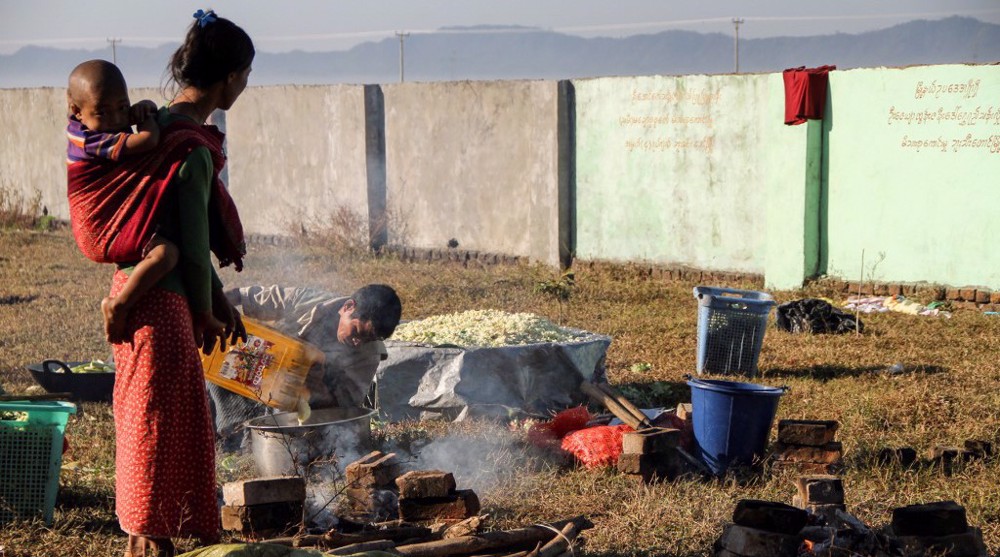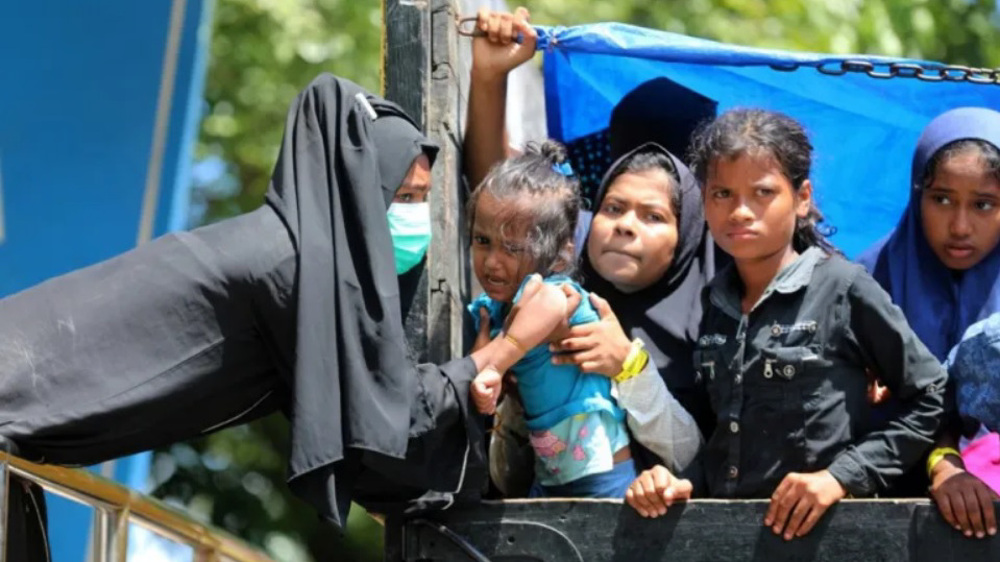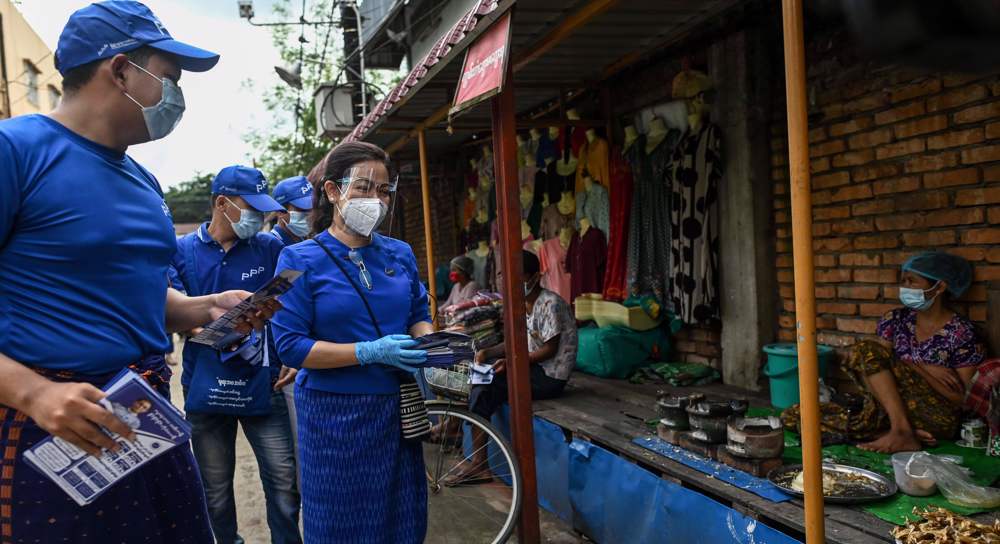Vote cancellations raise serious doubts about integrity of Myanmar poll
Myanmar’s election commission has barred certain areas in the country from voting in upcoming elections, deepening concerns about the credibility of the polls, as more than 1.5 people in the Buddhist-majority country remain without the right to vote.
The vast majority of those affected are in Rakhine State, the site of a state-sponsored, genocidal campaign against the minority Muslim Rohingya as well as ongoing fighting between the army and Buddhist militants.
Hundreds of thousands of Rohingya Muslims have fled Rakhine, but many thousands also remain there, confined to camps and apartheid conditions.
The Myanmarese military has also been battling the so-called Arakan Army in Rakhine as well as Chin State since January last year. The militant group is seeking more autonomy for ethnic Rakhine Buddhists.
Now, 1.2 million people in Rakhine will no longer be able to vote in the country’s November 8 general elections, the first poll since de facto leader Aung San Suu Kyi’s National League for Democracy (NLD) won a landslide victory in 2015.
Experts have voiced concern that the disenfranchisement will further alienate ethnic minority groups in the troubled Rakhine.
“The Union Election Commission’s procedures to cancel elections in conflict-affected constituencies are not transparent or consistent,” Min Zaw Oo, the executive director of the Myanmar Institute for Peace and Security, told Al Jazeera on Thursday.
“The cancellation will lead to the disenfranchisement of 73 percent of Rakhine voters and inevitably push them to more radical approaches, making it harder for national reconciliation,” he said.
Rakhine came to global attention in 2017, when more than 750,000 Rohingya fled to neighboring Bangladesh to escape a military crackdown that UN investigators said was carried out with “genocidal intent.” Bangladesh was already hosting some 200,000 Rohingya when the exodus began.
The Rohingya have inhabited Rakhine for centuries, but Myanmar denies them citizenship. Bangladesh refuses to grant them citizenship, too.
Back in August, authorities in Myanmar disqualified six Rohingya politicians from contesting the general elections for the alleged lack of ID documents.
Successive governments in Myanmar have stripped the Rohingya of their identity documents.
The latest decision has cast doubt on the election commission’s impartiality, with many questioning the its opaque decision-making processes.
“The result of the cancellation of elections in most parts of Rakhine State will be more intense conflict,” Aung Kyaw Htwe, an ANP candidate who had been running for a seat in the state legislature in Pauktaw said. “[The cancellations] will impact the stability of the state, trust, and reconciliation. Beyond the elections, I am really worried about a worsening political and economic situation.”
Last week, the election commission said security concerns in conflict-ridden areas made it impossible to guarantee free and fair elections there.
It said its decisions were based on recommendations by the government, the defense and home affairs ministries, the military, and police, but did not elaborate on the criteria it used.
Many international rights organizations have also cast doubt on the integrity of the upcoming general elections in Myanmar, as access to information has been hampered due to internet restrictions and the coronavirus lockdown.
“While parts of Myanmar are facing serious security problems, the authorities should do all they can so that eligible voters can cast their ballots,” Human Rights Watch’s Deputy Asia Director Phil Robertson said in a statement on Wednesday.
“The Union Election Commission should consult with political parties and local groups in affected areas to validate the security concerns and consider options that would safeguard people’s right to vote,” Robertson said.
The election commission has not offered an alternative date or format of voting in the constituencies where the elections have been cancelled. And any by-elections can only take place after the first year of a government’s term, according to the country’s electoral rules.
Human Rights Watch says the preparations for the elections have been riddled with “systemic problems and rights abuses that will deprive people of their right to fairly elect their government.”
Aung Kyaw Htwe, the former ANP candidate, said, “The main loser is the Rakhine people. They lost their rights as citizens to choose their representatives, and we lost our ability to serve as their legitimate voice regarding politics, conflict, and development.”
The election commission has also faced questions about its decision not to postpone the elections despite a worsening coronavirus outbreak.
Iran’s police chief vows to arrest every last terrorist
Nation delivered crushing response to enemy amid rallies: Pezeshkian
Iran warns of possible evacuation of it’s UK embassy over security failures
VIDEO | Iranians united in face of foreign plots
Iran reports improved Gini coefficient for year to March 2025
VIDEO | Pakistan condemns Israel’s recognition of Somaliland
VIDEO | Paintings of Palestinian teenager reflect war, displacement in Gaza
Iran summons European ambassadors to protest support for riots













 This makes it easy to access the Press TV website
This makes it easy to access the Press TV website